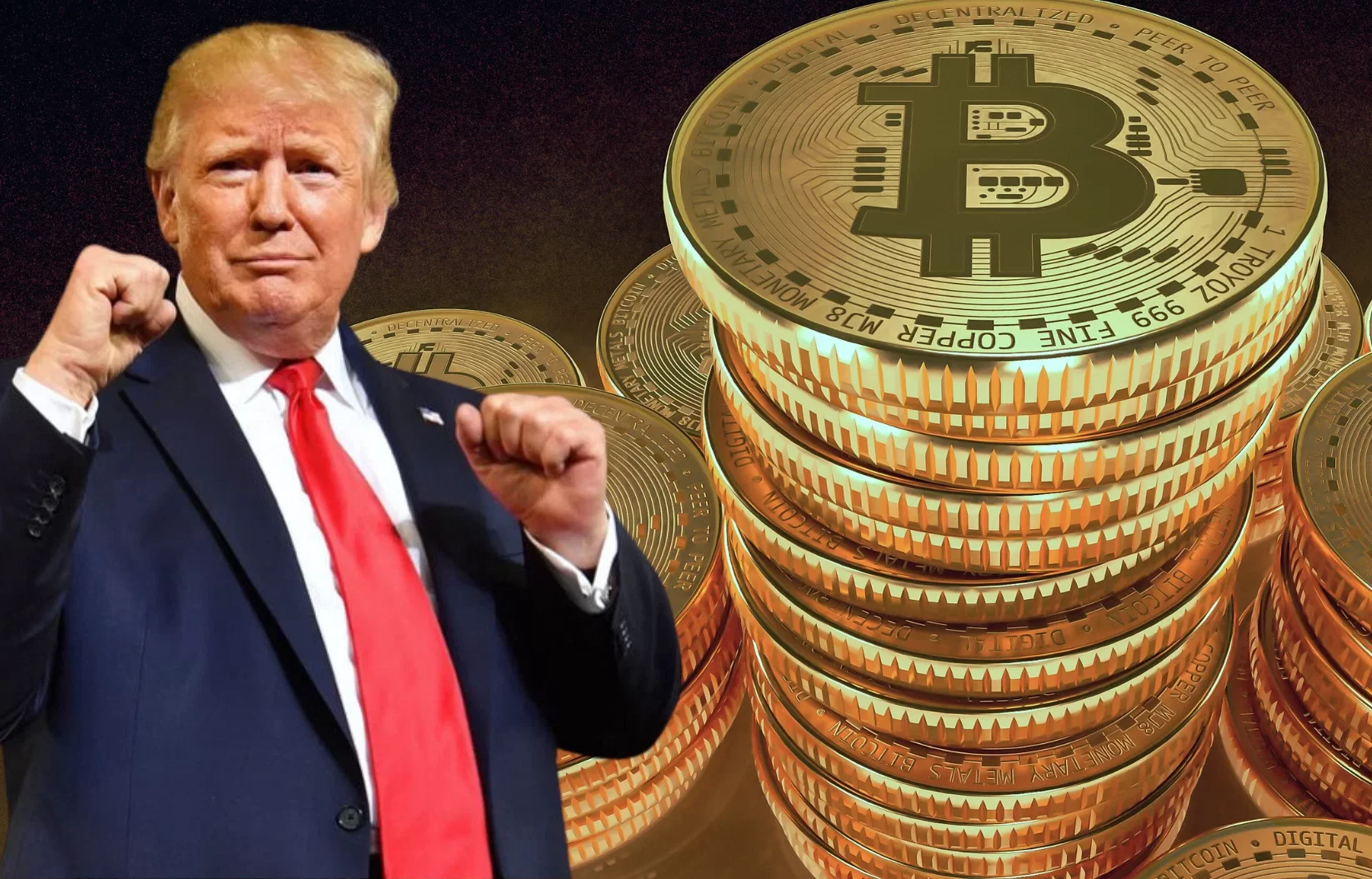The recent changes in the global economic landscape have made traditional markets very volatile. The Trump Tariff War has caused tremors in both the global and domestic economies. Many people have started investing money into Bitcoin because it is a popular alternative asset. As a decentralized and transnational digital currency, Bitcoin provides distinct protection against tariff disputes and trade conflicts. As explained in this article, buying and holding Bitcoin during the Trump tariff war may be the most beneficial strategy for shareholders.
Effects of Trump’s Tariff War on International Markets
Tariffs imposed by the Trump administration, particularly in the trade war with China, disrupted markets. Trump Inauguration Impact Businesses and investors were forced to reconsider their strategies due to taxes on Chinese and other imports, leading to worries regarding global commerce.

As tariffs were imposed and reciprocated, the stock market and asset values fluctuated wildly. Example foreign tariffs. Rising costs and falling worldwide demand are bad news for the agricultural, technological, and manufacturing sectors. Throughout the trade war, traditional currencies, notably the US dollar, experienced fluctuations.
Trade disputes exacerbate financial instability by putting pressure on worldwide supply systems. For this reason, many investors looked for investments less vulnerable to fluctuations in the global economy and politics.
Bitcoin: A Secure Investment
Bitcoin is becoming regarded as a safe-haven asset amid economic downturns. Is unaffected by tariffs and is not beholden to any government or central bank. The decentralized network of Bitcoin and its 21 million coin supply creates scarcity, making it a valuable store of value. Investors use Bitcoin to hedge against inflation, currency devaluation, and political upheaval.
An advantage of Bitcoin in the Trump Tariff War is its decentralization, which makes it irrelevant to national economies. Bitcoin remains unaffected by trade policies and tariffs, in contrast to traditional currencies. Government policy and international trade do not affect its worth; rather, it is determined by the demand and supply within its ecosystem. When it comes to tariffs and trade disputes, Bitcoin is a shield.
Advantages of a Buy-and-Hold Approach
Bitcoin’s price is volatile, but long-term investors have profited. The buy-and-hold Bitcoin strategy has helped investors secure their capital and navigate traditional markets throughout the Trump Tariff War. To “buy and hold” Bitcoin means to keep it despite price variations. We expect Bitcoin’s value to rise. Its digital asset use and adoption rate are rising.
Bitcoin’s limited supply and rising popularity among businesses and consumers provide it with long-term worth. Bitcoin survived the Trump Tariff War. Bitcoin attracts institutional investment and mainstream usage despite market dips. Bitcoin has long-term growth potential without the volatility of traditional assets during economic turmoil.
Bitcoin’s Global Accessibility
An extra perk of buying and holding Bitcoin during the Trump tariff war is its global accessibility. Buying and holding Bitcoin is possible for anyone, anywhere, with an internet connection. In contrast to conventional assets controlled by national regulations and trade limitations, Bitcoin is global in scope and may be swiftly transferred.

Investors might diversify their investments to protect their wealth from the effects of trade restrictions. The global accessibility has reduced tariffs. Further, Bitcoin’s decentralized nature makes it resistant to government regulation and the capriciousness of central banks. Trade policies and tariffs affect national currencies, but not Bitcoin. It’s a solid choice for hedgers against the Trump trade war’s effects on investments.
Bitcoin’s Role in Hedging Against Inflation
People worry about inflation during economic instability, especially when governments initiate trade wars or embrace protectionist policies. Tariffs can raise import prices, producing local currency inflation. Stocks and bonds may lose value in such times. Bitcoin, however, is termed “digital gold” for its value-storing abilities. Bitcoin is immune to this.
Fiat currency inflation due to its 21 million-coin supply. Governments can depreciate fiat currencies by printing more money to offset tariff wars or other economic downturns. Deflationary Bitcoin’s value is less likely to drop. Bitcoin is a solid hedge against inflation, enticing investors who wish to keep their money.
Summary
Investors have faced significant challenges due to the Trump Tariff War, particularly those with large holdings in traditional assets susceptible to market fluctuations and geopolitical instability. Bitcoin ETF Price Dynamics But Bitcoin offers investors a unique opportunity to weather the economic storm. Investors who buy and retain Bitcoin are positioning themselves for long-term growth.
While protecting themselves from the risks of trade conflicts and tariffs. Bitcoin, with its decentralized, deflationary, and internationally accessible characteristics, is an excellent choice for individuals seeking to protect their savings and financial future amidst ongoing economic turmoil.


